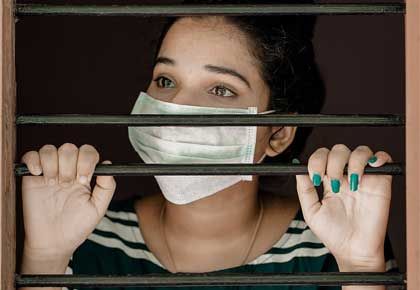'Try to get in 30 to 60 minutes of a brisk walk every day, like my grandparents would do in the village -- twice a day they would go for morning walks and they would go after dinner.'
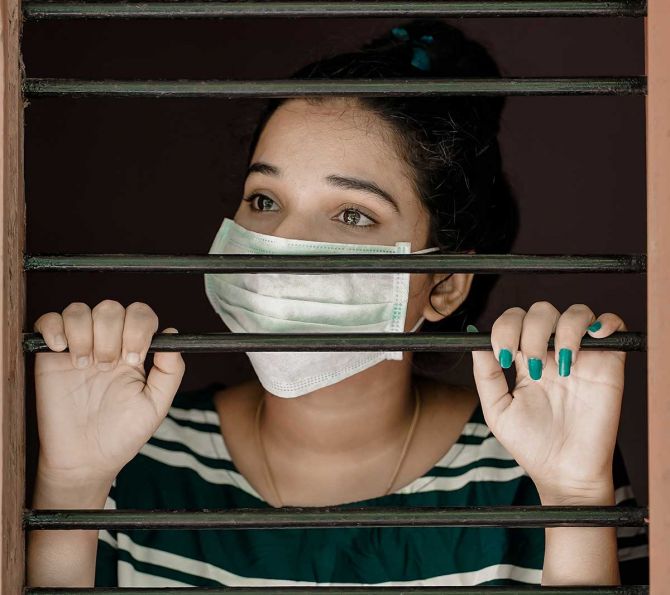
Revolutionary London cardiologist and food activist Dr Aseem Malhotra believes we should meet COVID-19 head on.
This is no time for pussy-footing, folks.
Because our biggest enemy right now is not the diabolic COVID-19.
It is the enemy within.
We know the health issues inside us that make us vulnerable to the disease and it is in our hands to solve them.
To solve them quickly.
To solve them well.
To solve them for good.
In Part I of his interview to Vaihayasi Pande Daniel/Rediff.com, Dr Malhotra proposed how we need to take charge of our diet and bring change in 21 to 28 days by rooting out the unwanted, addictive rubbish from our daily dietary intake -- processed food, the excess carbs and the sugary items.
"Un-sweeten your sweet tooth" during that period, he suggested, because we Indians have major sweet tooths.
Roll back the extra rice and the too many rotis, parathas, puris, kachoris and dosas.
And ban the packaged snack foods.
Further details of these changes are in his latest book titled The 21-Day Immunity Plan.
In Part II of his interview, Dr Malhotra offers a few more lifestyle changes that will strengthen our metabolism.
Read on. You must. It can save your life.
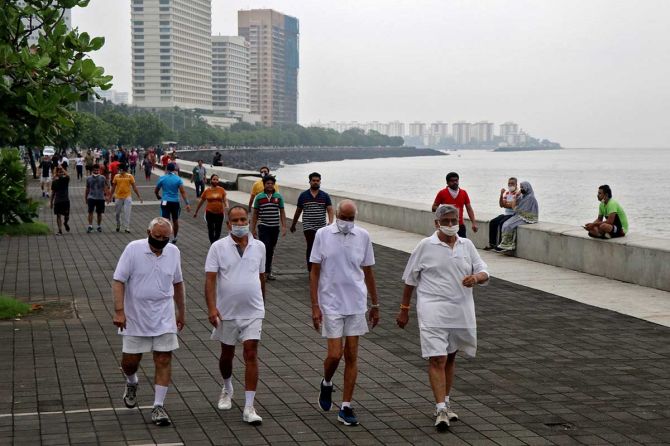
You said one cannot bring about huge change immediately with exercise.
But what kind of exercise should one do, given that people are more house-bound or locked down?
Exercise is over-rated. But it is good for physical and mental health
The very simple thing our grandparents would do was just a brisk walk.
And a bit of resistance training, once a week maybe, where you're lifting something slightly heavy or doing some squats in the house.
And just keep moving.
Don't stay sitting for more than 45 minutes.
Get up every 45 minutes.
Have some sort of timer on your watch or whatever (to remind you).
Do some squats or do a walkabout.
Try to get in 30 to 60 minutes of a brisk walk every day, like my grandparents would do in the village -- twice a day they would go for morning walks and they would go after dinner.
This is the best thing you can do.
What Mahatma Gandhi said -- you can walk a mile.
The best thing you can do - walk a mile every day.
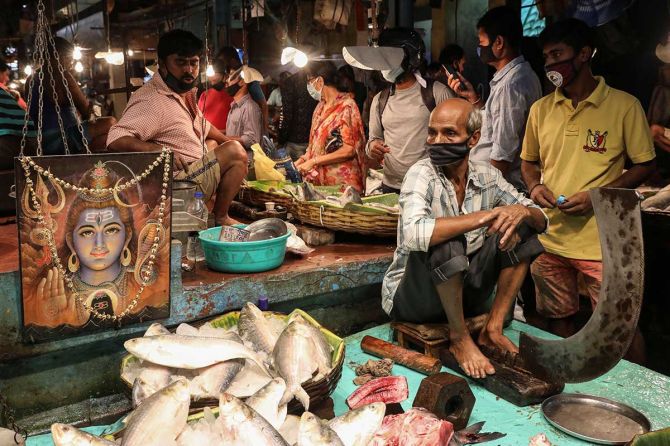
When you were speaking about changes to your diet for this 21-day immunity plan, should one reduce or shun meat, fish or poultry?
Meat, fish, eggs and dairy are very nutritious foods, high in protein which is deficient for the majority of Indians and can be very much part of a healthy diet.
There is no strong evidence linking their consumption with heart disease or any other major adverse health outcome.
What evidence do you have that this 21-day to 28-day metabolic programme will work for COVID-19?
What have you found?
Overwhelming evidence.
We have a number of clinical studies already published.
And I have my own experience as a doctor implementing this with my patients.
That combined with published research study shows that you can improve these metabolic markers within a few weeks within 21 to 28 days.
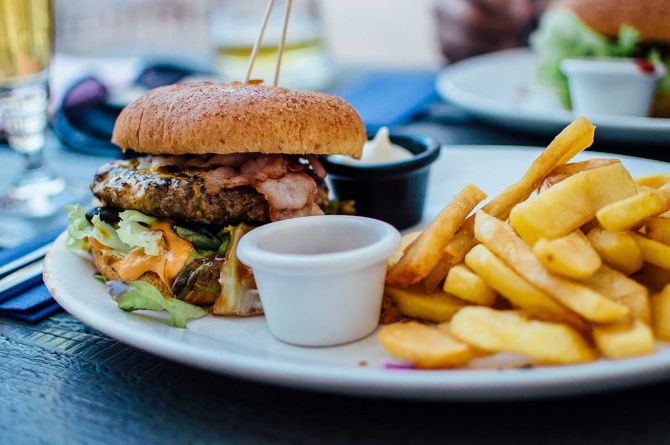
But broadly, what is the medical basis for it to work?
Poor metabolic health equals poor immune health.
If you are improving your metabolic health then you are improving your immune health.
Anything that you do, if it going to excessively raise blood insulin levels, leads to something called insulin resistance over time.
That all leads to high blood pressure, Type 2 diabetes, heart disease, cancer, dementia.
This is the underlying root, the biggest risk factor, if you like -- insulin resistance. Linked to that is chronic inflammation.
Now that happens with a diet of high glycemic index carbohydrates and ultra-processed food.
And from being sedentary.
From psychological stress.
It is not getting at least seven to eight hours of sleep at night.
When you get these all sorted out, then all your markers and your insulin resistance improves, and this is linked to all these other conditions.
The bottom line is eating is affecting your insulin, your glucose, affecting your chronic inflammation in the body.
Ultra-processed foods are basically a chronic inflammatory metabolic poison.
Of course, just like one cigarette won't kill you, one of these will not kill you,
But over time is not doing good for your body.
And even within weeks it is going to increase the markers and cause what we call low-grade damage and inflammation within the body.
The good news is you can reverse that in a month.
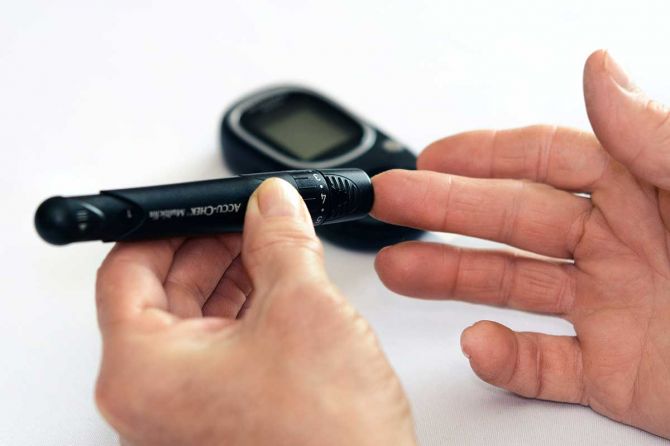
COVID-19 seems to cause diabetes. Many people report getting diabetes after COVID-19. So how do you prevent that?
It's the same thing.
What happens is any infection or stress on the body can raise blood glucose and give you diabetes or give you temporarily a diagnosis of diabetes.
The stress of infection will basically bring people who are pre-diabetic into Type 2 diabetes.
It's very likely that the people, who are getting diabetes, have already got underlying pre-diabetes and they haven't got normal glucose metabolism, they haven't got normal metabolic health.
So if they optimise their metabolic health now, it is much less likely they're gonna develop type two diabetes, even temporarily, from COVID-19.
Also, medical literature, even the guidelines, a lot of that is racially biased.
It is based upon data and research done on Caucasians.
As Indians we have a slightly increased genetic predisposition to developing conditions like Type 2 diabetes, with lower levels of body fat, compared to Caucasians.
And we get these conditions five to 10 years earlier, like Type 2 diabetes and heart disease.
So, we've got this genetic predisposition already.
But it's made worse by our lifestyle.
Combined together, it's a huge problem. It's a time bomb.
This is not being addressed.
This is not going to be managed by drugs, by the way.
Drugs are next to useless in managing these sorts of metabolic syndrome.
There are no drugs to manage metabolic syndrome.
There are drugs to manage individual risk factors like blood pressure, etc.
But even those risk factors being managed with drugs have very, very limited marginal impact on health.
There was one study which said that being on blood pressure drugs did help prevent susceptibility to COVID-19.
And it made the chances of getting more seriously ill with COVID-19 less?
It has just been debunked.
I just got an e-mail from Medscape (Web site) today looking at all the research.
It neither benefits nor does it do any harm.
There are no benefits from these drugs at all. Absolutely not.
They just looked at the totality of the evidence. There is no benefit at all
This is pharmaceutical industry marketing.
This is not science. Not honesty. Not transparency. It's not true.
Please let your readers know that.
There are powerful vested interests in the food industry and the pharmaceutical industry and they have captured and influenced health misinformation and used the mainstream media to do so.
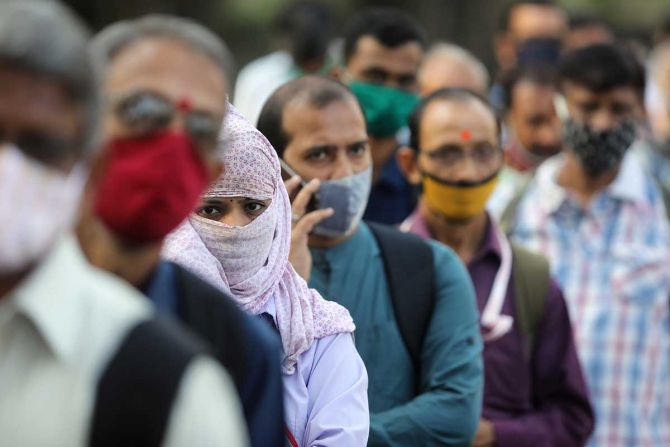
When COVID-19 began to really hit India in March, there was this belief that since more well-to-do Indians are under a lot of risk because of diabetes, heart disease and their lifestyle and poorer Indians because of malnourishment, India would fare very badly.
Since then, the case rate has climbed really very high and it's going to top the world probably for a long time, but the death rate has not been bad.
Quite low in spite of the predictions.
How do you explain that?
These are multi-factorial -- what goes into COVID-19 (statistics)
I was concerned about India because it's the Type 2 diabetes capital of the world.
But the one thing that is to India's advantage -- and correct me if I'm wrong -- more than 60 of the population is under 40, isn't it?
Age itself is the biggest risk factor.
If you combine that with poor metabolic health, the people who are going to be most adversely affected, almost certainly are basically over 60.
They will have these metabolic diseases.
Now because India's population is much younger, you will see less of the severity of the illness, because many people are under 40.
It's usually in the 40-60 and 60 and above (age range) when you start to develop this metabolic syndrome for most people, and for Indians.
That's probably why. Although in absolute terms it is one of the highest in the world, but in relative terms it is low, because of the younger population.
But that still means that there are god knows so many millions and millions, tens of millions of Indians who are very, very vulnerable and they can do something about it now.
In the context of this pandemic, for you, as a doctor, what have been sort of the takeaways?
What did you find puzzling, maybe about the illness itself, or maybe about people's behavior?
I was the one, as you probably know, to highlight and identify that Boris Johnson's illness is linked to his weight.
It needed to be said publicly. Then it became a story.
Then Boris obviously reacted to it in a positive way
Puzzling to me -- and I've been talking about this from the beginning -- for me, I think, the biggest concern is that none of the public health authorities around the world anywhere, US, UK, India, were telling the public at the very beginning, that this is the time to change their diet and their metabolic health.
For me that was the biggest disappointment.
I would say it's scandalous, because the evidence is clear.
Very powerful vested interests have sequestered that information for a very long time.
There's no money to be made in giving people the right information about healthy eating.
There's a lot of money to be made for drugs.
And those in the food industry selling ultra-processed food.
I've been very disappointed with our public health bodies of governments.
They have not been very explicit with the public about how important their lifestyle is.
They are doing it now, in the UK.
I have not seen anything big in in the US.
 IMAGE: Dr Aseem Malhotra, cardiologist and anti-obesity campaigner.
IMAGE: Dr Aseem Malhotra, cardiologist and anti-obesity campaigner.Not seen any messaging in the mainstream media.
So, this is really another symptom of our overall system failure.
It reveals that people are not really having true informed consent, when they make their decisions on a day-to-day basis
This basically goes at the very heart of our so-called democracy and capitalism, which isn't really functioning properly.
It's failing people, it's failing the population and it's failing the public.
And for me, that was the most disappointing thing to see.
I thought with this pandemic, this will really get people highlighting their concerns and fears, because we're all vulnerable and we can help the population by doing this.
And this didn't happen
Some of this is a lack of knowledge.
But a lot of it is because of very powerful vested interests, who are sequestering and deliberately suppressing that information from getting out to the masses through the media.
This is bit radical, but, in effect, would you say that, they're sort of pushing people to get sick?
I don't think it is deliberate.
I think money is basically driving a lot of the behaviour and the (availability of) information
So, they are in essence killing for profit.
Essentially, this is what they are doing.
Enough is enough.
And it is time we reform the system, basically, so people can get accurate, honest, independent information about their health.
And we can empower people to make decisions to get them healthier, but we also need to make sure we improve the food environment so the healthy choice becomes the easy choice.
*Kindly note the images have been posted only for representational purposes.
Feature Presentation: Ashish Narsale/Rediff.com
